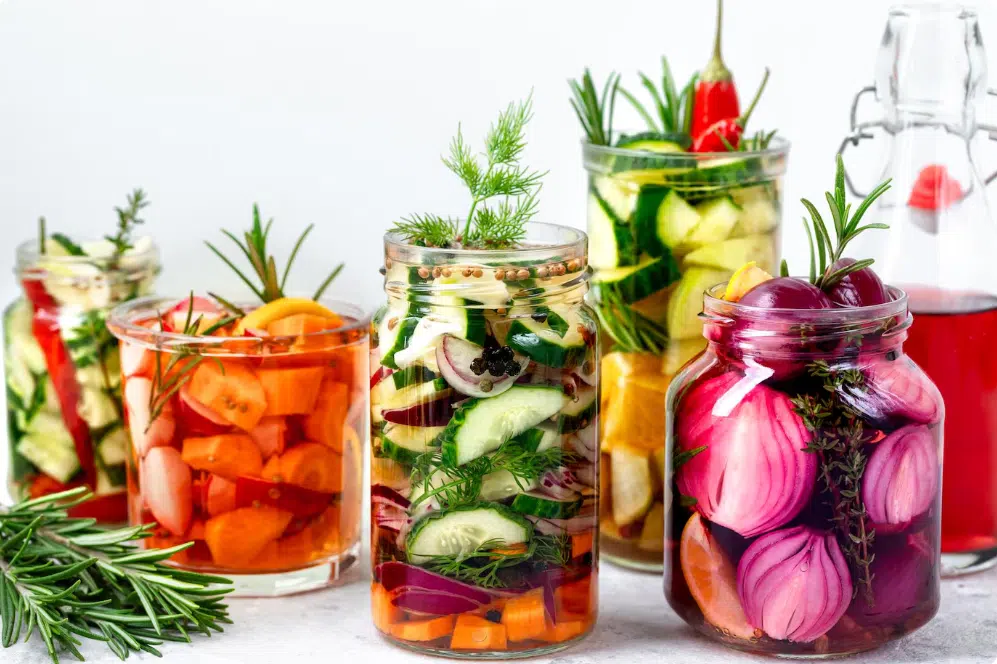🥒 How Acidic Are Pickled Vegetables for Teeth?

Pickles, thanks to their sour and biting taste, are sought after to accompany any one of the meals. Starting from cucumbers to onions, there is a great deal of pickled vegetables that are appreciated by people in terms of their well-known taste and positive effects on health.
At the same time, due to an increased level of pH, this type of foodstuff can also have an effect on tooth health. This piece of writing takes you deep into the topic of the influence of the acid in pickled vegetables on your teeth, the reasons for their acidic nature, and some recommendations on how you may consume them in such a way as not to dissolve the enamel of your teeth.
🔬 Why Are Pickled Vegetables Acidic?
Vinegar or brine used in the pickling process is the source of the acidity of pickled vegetables. For example, vinegar, which is usually made of acetic acid, is a strong acid, and it is the cause of pickled vegetables’ sour flavor. The level can vary depending on the product and the procedure, but generally, it is lower than the neutral level of 7. The pH values can be in the range between 3.0 and 4.0. These data, compared to neutral pH, are likely to cause the teeth serious harm if the consumption is regular.
🦷 How Pickled Vegetables Affect Your Teeth
Enamel Erosion
Not to mention that pickled vegetables contain acid that can wear down the enamel, while if people frequently consume this type of pickled veggies, they make the teeth more sensitive and susceptible to caries.
Sore Teeth
Moreover, if the enamel is weak, a person can easily feel the pain in the teeth when eating something hot, cold, or sweet as a result of the layer that protects the teeth not being the same as it used to be.
Discoloration
Among the apparent signs of the influence that the pickled vegetables have on the teeth, enamel discoloration is one of the prime examples. The acid in the pickles assists in washing away the tooth enamel, which over time leads to the teeth having that yellowish color that is characteristic of decay.
Cavities
Pickled vegetables’ acid content can bring about cavity formation due to the loss of the enamel, which becomes less resistant to bacteria.
Tips to Protect Your Teeth While Eating Pickled Vegetables
- Rinse your mouth with water after consuming pickled vegetables to wash away residual acids and prevent them from sitting on your teeth.
- Pair pickled vegetables with alkaline foods such as cheese, yogurt, or leafy greens. These foods can help neutralize the acidity and protect your enamel.
- Do not brush your teeth immediately after eating pickled vegetables. The acid from the pickles can soften the enamel, and brushing too soon may cause further enamel damage. Wait for about 30 minutes before brushing.
- Opt for less acidic pickles or try making your own pickled vegetables with a milder brine, which can be less harsh on your teeth.
🥒 Final Thoughts from Lema Dental Clinic
Although pickled vegetables are a tasty and wholesome food option, their low pH can still be harmful to the enamel of your teeth if consumed too often and not with proper care. Simple steps such as rinsing your mouth after eating pickles, pairing them with tooth-friendly foods, and waiting before brushing your teeth can help you enjoy pickled vegetables while safeguarding your smile.




